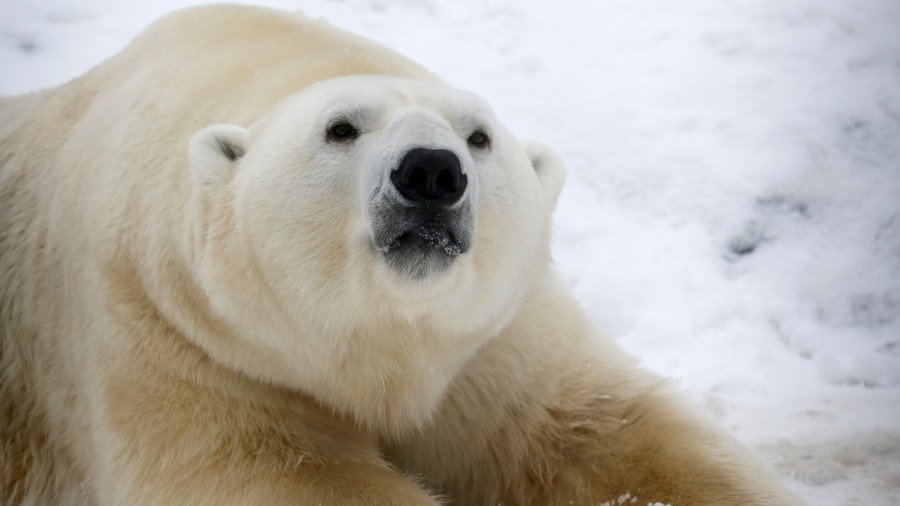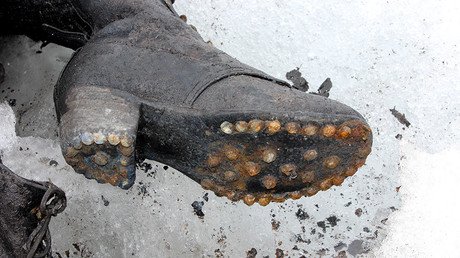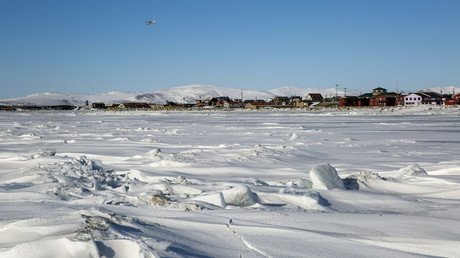‘Soul-crushing’: Filmmaker captures ‘slow, painful death’ of starving polar bear (VIDEO)

Footage of a starving polar bear clinging to life in the Canadian Arctic has highlighted one of the most devastating effects of climate change.
The emaciated bear was filmed just “hours or days” from death as it searched for food on the barren and iceless Baffin Island – Canada’s largest and the fifth largest in the world. The heartbreaking footage was captured by the conservation group Sea Legacy while filming a documentary over the summer.
READ MORE: Alaska problems: Seal blocks airport runway while ‘sunbathing’ (PHOTO)
“My entire Sea Legacy team was pushing through their tears and emotions while documenting this dying polar bear,” wrote photographer Paul Nicklen in the lengthy caption accompanying the video, shared on Instagram. “This is what starvation looks like. The muscles atrophy. No energy. It’s a slow, painful death.”
The heartbreaking footage shows the bear fruitlessly searching for food inside abandoned trash cans with little luck. Nicklen didn’t think the bear was old but said its condition was bad enough to expect it to die within hours of filming.
“As temperatures rise and sea ice melts, polar bears lose access to the main staple of their diets – seals,” Nicklen noted. “Starving, and running out of energy, they are forced to wander into human settlements for any source of food.”
READ MORE: US approves Alaska offshore oil & gas drilling, enraging environmental groups
Responding to criticism as to why the film crew didn’t come to the bear’s aid, Nicklen explained that the team were forced to choose between saving a single bear, or enlightening the world to the pain and suffering felt by the remaining 25,000 polar bears facing extinction within the next 100 years.
“It’s a soul-crushing scene that still haunts me, but I know we need to share both the beautiful and the heartbreaking if we are going to break down the walls of apathy,” he wrote.
“There is no band aid solution. There was no saving this individual bear. People think that we can put platforms in the ocean or we can feed the odd starving bear. The simple truth is this—if the Earth continues to warm, we will lose bears and entire polar ecosystems.”















